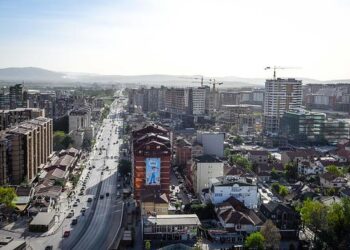In a decisive move that has thrown Kosovo’s political landscape into uncertainty, the Constitutional Court has blocked Members of Parliament from forming a new government, escalating tensions within the young Balkan state. The ruling, delivered amid fierce debate and mounting pressure, underscores the ongoing challenges facing Kosovo’s democratic institutions as they navigate complex legal and political hurdles. This development not only stalls the country’s governance but also raises questions about the future direction of its fragile political system.
Constitutional Court Decision Deepens Political Deadlock in Kosovo
The recent ruling by Kosovo’s Constitutional Court has further complicated the already fragile political landscape. By invalidating key mandates, the Court effectively blocked several Members of Parliament from participating in the government formation process. This decision comes at a time when Kosovo is struggling to establish a stable administration following inconclusive elections, deepening the impasse between rival factions. Critics argue that the Court’s move undermines democratic procedures, while supporters claim it upholds constitutional integrity amid accusations of electoral manipulation.
Key consequences of the ruling include:
- Extension of political uncertainty with no clear majority to form a government
- Increased tensions between ethnic and political groups
- Potential setbacks in Kosovo’s EU integration efforts
| Political Party | Seats Affected | Impact |
|---|---|---|
| Vet√ęvendosje | 3 | Reduced voting power in assembly |
| LDK (Democratic League) | 2 | Hindered coalition negotiations |
| Serb List | 1 | Heightened ethnic tensions |
Implications for Democratic Governance and Regional Stability
The recent intervention by Kosovo’s Constitutional Court has not only stalled the parliamentary process but also raised serious concerns about the resilience of the nation’s democratic framework. By halting the formation of a new government, the court has highlighted the persistent tension between judicial authority and legislative will, creating an environment where political uncertainty threatens the legitimacy of democratic institutions. Such judicial activism, while legally grounded, risks being perceived as a tool for political obstruction, potentially eroding public trust and inviting increased polarization among political factions.
On a broader scale, this stalemate reverberates beyond Kosovo’s borders, injecting volatility into a region already grappling with historical conflicts and fragile alliances. The impasse underscores the delicate balance between democratic governance and regional stability, with key implications including:
- Heightened ethnic tensions: Disrupted governance often amplifies ethnic divisions, particularly in a multi-ethnic society like Kosovo.
- Increased external influence: Foreign actors may exploit political deadlock to pursue their strategic interests.
- Delayed reforms: Essential socio-economic and security reforms risk being sidelined amid political chaos.
| Factor | Potential Impact |
|---|---|
| Judicial Interference | Questioned democratic legitimacy |
| Political Deadlock | Stalled reforms and governance |
| Regional Relations | Increased instability and tension |
Pathways Forward Recommendations for Restoring Political Consensus
Resolving the ongoing impasse requires a multi-pronged strategy centered on rebuilding trust between Kosovo’s fragmented political factions. Dialogue remains the cornerstone; establishing regular, facilitated communication channels between rival parties can ease tensions and foster mutual understanding. In parallel, international mediators, including the EU and Western Balkans envoy, should intensify their efforts to provide neutral oversight and encourage compromise without imposing solutions that may deepen resistance.
Concrete steps include:
- Implementing a temporary power-sharing arrangement to stabilize governance
- Revising constitutional mechanisms to prevent future judicial blockades
- Launching joint initiatives on economic development to shift focus toward policy over politics
| Recommendation | Expected Impact |
|---|---|
| Power-Sharing Agreement | Reduced political stalemate |
| Constitutional Reform | Prevention of institutional deadlocks |
| Economic Cooperation Programs | Enhanced public support for governance |
Insights and Conclusions
As the constitutional standoff continues, Kosovo’s political future remains uncertain, with the Constitutional Court’s ruling effectively halting the formation of a new government. This unprecedented decision highlights the ongoing challenges faced by Kosovo’s fragile democracy and underscores the complexities of its political landscape. Observers now await how political actors will respond to the ruling and whether a resolution can be reached to restore stability and governance in the country. The coming weeks will be crucial in determining whether Kosovo can navigate this impasse or if prolonged instability will further hinder its development and integration into the broader European framework.
















